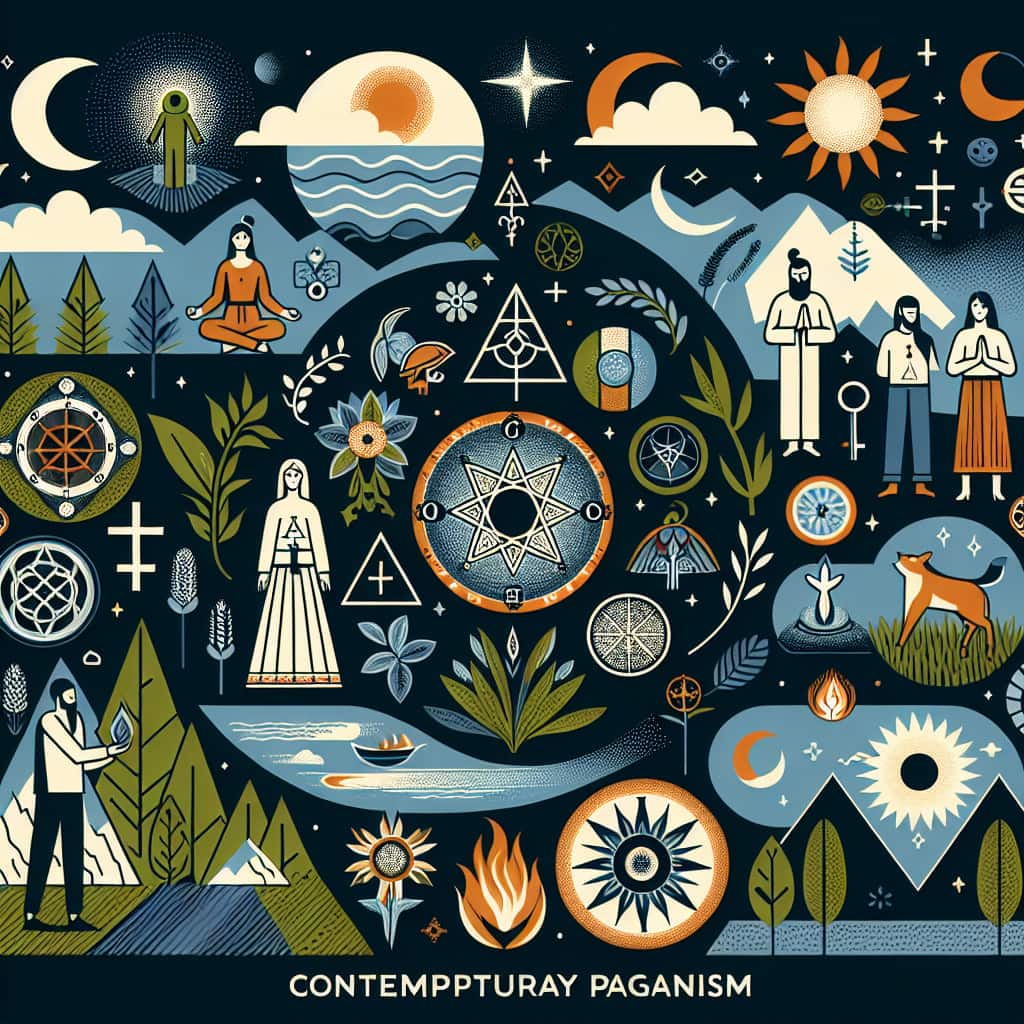The pagan religion has a long and rich history that dates back to ancient times. It is one of the oldest known religions and has survived to the present day. In this article, we will explore the question of whether the pagan religion still exists and how it has evolved over time. We will look at the various forms of paganism that are practiced today, as well as its core beliefs and rituals. Finally, we will discuss the impact of modern society on the pagan religion and what the future may hold for this ancient tradition.
The pagan religion, also known as polytheism, is an ancient religious belief system that involves the worship of multiple gods or goddesses. While it was once prevalent in many parts of the world, its practice has declined significantly over the centuries. But does the pagan religion still exist today?
What Is Paganism?
Paganism is a broad term used to describe any non-Abrahamic religion that is polytheistic in nature. It is an umbrella term that encompasses a variety of spiritual beliefs, including Native American, Celtic, and Norse traditions. Pagans often celebrate the changing of the seasons and the cycle of life by performing rituals and holding festivals.
Where Is Paganism Practiced?
Paganism is practiced around the world, with followers in Europe, North America, South America, Africa, Asia, and Australia. While it is not as widespread as many other major religions, there are still many adherents to the faith. In the United States, there are an estimated one million pagans, making it one of the fastest-growing religions in the country.
What Do Pagans Believe?
Pagans believe in the power of nature and the cycle of life and death. They also believe in multiple deities, who may represent different aspects of the natural world. Pagans tend to be animists, believing that all objects in nature have a spirit or soul. They also believe in reincarnation, the idea that the soul is reborn in a new body after death.
Do Pagans Worship Satan?
Paganism is not related to Satanism, which is a separate belief system. While some pagans may be drawn to dark aspects of the faith, they are not Satanists. Pagans do not believe in Satan or any other evil deity, and they do not practice black magic or other forms of dark magic.
What Are the Principles of Paganism?
Pagans generally follow three main principles: respect for nature, respect for others, and personal responsibility. They believe that all living things are connected to each other, and that all life should be respected and honored. Pagans also believe in living in harmony with nature, and taking only what is needed. Finally, they believe that each person is responsible for their own actions and should strive to live an ethical and moral life.
How Is Paganism Practiced?
Paganism is practiced in a variety of ways, depending on the individual practitioner and the tradition they follow. Generally, pagans celebrate the changing of the seasons in a variety of rituals and festivals. They may also practice meditation and divination, and perform spells and rituals for various purposes. Pagans may also gather in groups to celebrate their faith, called “circles” or “groves.
Does the Pagan Religion Still Exist?
Yes, the pagan religion still exists today. While it is not as widespread as many other major religions, there are still many adherents to the faith. In the United States, there are an estimated one million pagans, making it one of the fastest-growing religions in the country. As more people become aware of paganism and its beliefs, the religion is likely to continue to grow in popularity.
The Pagan religion is a complex and multifaceted belief system that continues to exist in various forms around the world today. Although it is not as widely practiced as other major religions, Paganism continues to be an important part of many people’s lives, providing them with a spiritual connection to the natural world and a sense of community. Paganism is also a source of inspiration for many, offering a unique perspective on our relationship with the environment, our ancestors, and the divine. Despite its many challenges, Paganism is a vibrant and enduring religion that will continue to exist for generations to come. It is a faith that encourages us to be mindful of our past, to be respectful of the environment, and to seek out a spiritual connection with the divine.






